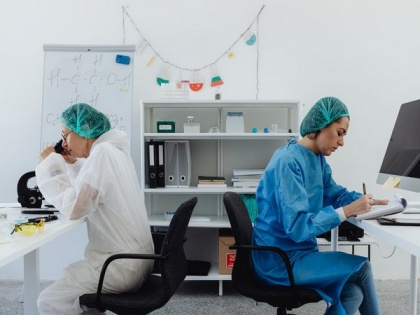Study sheds more light on stem cell-based therapies for Type 1 diabetes patients
By ANI | Published: June 14, 2023 11:52 PM2023-06-14T23:52:22+5:302023-06-14T23:55:26+5:30
Illinois [US], June 14 : Following promising results from pre-clinical research and a recent clinical study on stem cell-based ...

Study sheds more light on stem cell-based therapies for Type 1 diabetes patients
Illinois [US], June 14 : Following promising results from pre-clinical research and a recent clinical study on stem cell-based therapies for Type 1 diabetes patients, researchers are now focusing on maximising the function and potential of stem cell-based treatments for future patient application.
According to recent estimates, more than 8 billion individuals worldwide have Type 1 diabetes (T1D). T1D occurs when the pancreas's so-called beta cells fail to produce enough insulin owing to immune system damage, causing blood sugar levels to rise above normal. T1D can cause serious organ damage over time. There is no cure for T1D, and the typical therapy is daily insulin supplementation, however some patients have difficulty maintaining normal blood sugar levels and risk developing disease complications.
Transplantation of beta-cells is an alternative treatment option being investigated for T1D patients, and news reports of a recently initiated clinical trial have generated hope that stem cell-derived beta-cells could become an alternative and renewable treatment for T1D patients, addressing the constant shortage of cadaveric beta cells.
In recent years, researchers have made great progress in generating large numbers of stem cell-derived beta cells (sBCs) in the lab, but current methods to make mature, functioning sBCs and to remove any remaining residual stem cells which may cause tumors in patients are costly and labor-intense, and therefore difficult to implement in large scale.
A recent study published in the journal Stem Cell Reports has now come up with a simple method to address those issues. In their work, Holger Russ and colleagues from the University of Florida, USA, found that dividing and potentially tumorigenic non-BCs can be eliminated from sBC cultures by a brief treatment with a chemotherapeutic drug. This method not only prevented graft overgrowth and tumor formation after transplantation into diabetic mice but also enhanced the maturation and functionality of sBCs. Accordingly, this method may reduce the time and cost involved for producing safe and efficient sBC transplants, and eventually contribute to enhancing access to this type of treatment for more patients with T1D.
Disclaimer: This post has been auto-published from an agency feed without any modifications to the text and has not been reviewed by an editor
Open in app